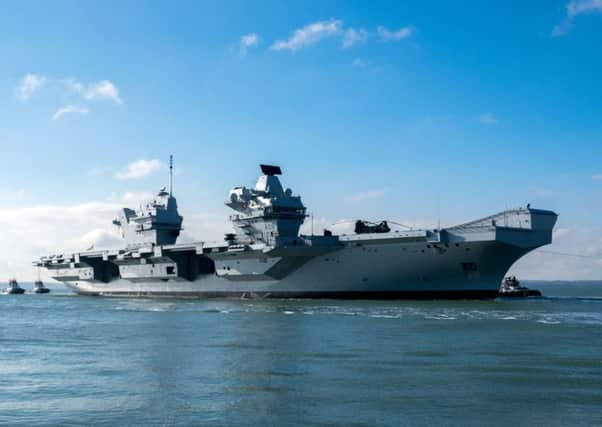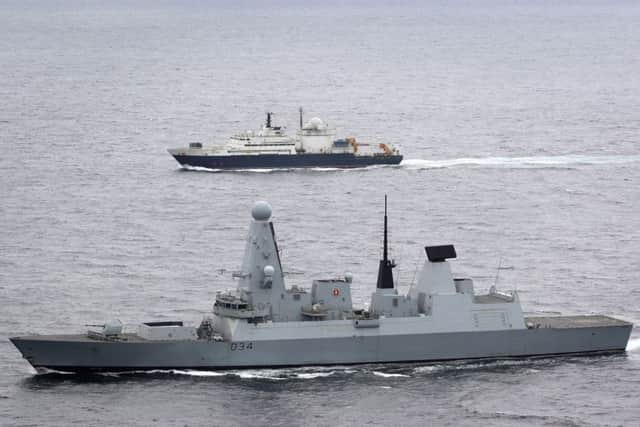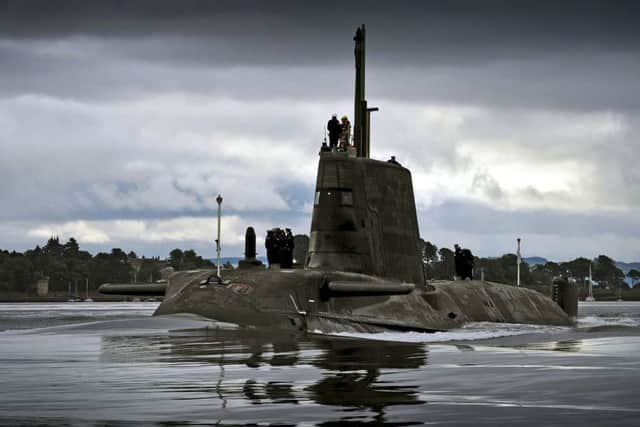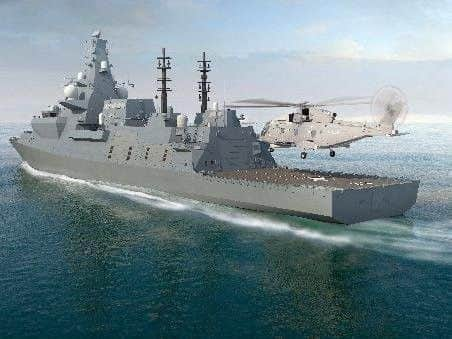Royal Navy at risk of being outgunned by Russia if defence spending isn't boosted, MPs say


The report by the commons defence committee said the government should start the process of upping the level of defence spending from two per cent to three per cent of total GDP.
A cash injection of this scale would equate to an addition £20bn of funding a year – enough to fill ‘black holes’ in defence budgets and bring investment levels up to those seen during the Cold War.
Advertisement
Hide AdAdvertisement
Hide AdAmong the concerns raised by the committee in their report, entitled Beyond 2 Per Cent, included fears over the Royal Navy’s anti-submarine warfare (ASW) capability.


MPs noted that Russian submarine activity has increased tenfold in recent years adding hostile submarine activity could ‘endanger the security’ of Britain’s nuclear deterrent.
And while Britain had a ‘world-leading’ ASW force during the Cold War, this has been ‘substantially reduced’, said the report, with MPs raising concerns about the ASW capability of the new Type 31e general purpose frigates.
The issue, MPs said, had been ‘compounded’ by the ‘late arrival and low availability’ of the Astute-class of submarines, which has caused a temporary dip in numbers of the UK’s attack submarines.
Advertisement
Hide AdAdvertisement
Hide AdElsewhere, the report highlighted concerns about Britain’s ability to man its own carrier strike group to protect the Royal Navy’s two new Queen Elizabeth-class aircraft carriers – which will be based in Portsmouth.


It said that to successfully do this, at least two air defence destroyers would be needed, alongside two ASW frigates, along with an attack submarine and attached support shipping.
However, the report said: ‘Generating such a force for any length of time is likely to put considerable strain on the Royal Navy, given the current size of the fleet.’
The report added Britain could rely on support from western allies to fill in the gaps but said: ‘Operating aircraft carriers without the sovereign ability to protect them is complacent at best and potentially dangerous at worst.
Advertisement
Hide AdAdvertisement
Hide Ad‘The UK should be able to sustain this capacity without recourse to other states.’


The cross-party group of MPs warned that failure to finance the military on a sustainable basis makes it ‘very difficult’ to implement a long-term strategy for Britain’s defence needs.
A new settlement providing long-term strategic and financial stability is the ‘only solution’ at a time when the UK faces a renewed threat from Russia, as well as increasing challenges from terrorism, extremism, cyber-warfare and the erosion of the rules-based international order, said the cross-party committee.
The report comes weeks ahead of the expected release of high-level findings from the Ministry of Defence’s Modernising Defence Programme (MDP).
Advertisement
Hide AdAdvertisement
Hide AdThe committee congratulated defence secretary Gavin Williamson for extracting military spending from the remit of the government’s National Security Capability Review.
Committee chairman Julian Lewis said: ‘The secretary of state (Gavin Williamson) was right to remove defence from the National Security Capability Review which would otherwise have resulted in further disastrous cuts to the armed forces, and we endorse his efforts to obtain a better settlement for defence.
‘The government now needs to look beyond the two per cent minimum on defence spending, and begin moving towards a figure of three per cent, to place our defence policy on a sustainable basis to meet new threats and fill existing financial ‘black holes’.
‘Defence is constantly described as the first duty of government. The MDP is the government’s opportunity to show that it means what it says.’
Advertisement
Hide AdAdvertisement
Hide AdA Ministry of Defence spokesman said: ‘The UK maintains the biggest defence budget in Europe, we have been clear we will continue to exceed Nato’s two per cent spending target.
‘The defence secretary launched the Modernising Defence Programme to strengthen our armed forces in the face of intensifying threats and, while we welcome the Defence Committee’s preliminary report, we will not speculate on the outcome of the programme before we share our headline conclusions.’